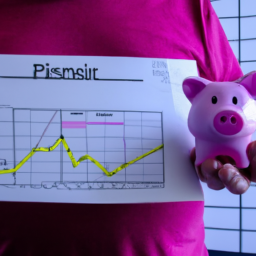Of the 13 million HSAs in the Employment Benefit Research Institute's database, only 12% of the account holders invested their HSAs in the stock market. However, this number is on the rise as more people become aware of the potential Benefit of investing their HSA funds. For long-term investors looking for low-cost, broadly diversified funds, there aren't many better places to start than with Vanguard Group. Vanguard offers a variety of exchange-traded funds (ETFs), including the Vanguard Total Stock Market ETF (AMEX:VTI) and the Vanguard S&P 500 ETF (AMEX:VOO), which are both excellent options for investing HSA funds.
An HSA is an account available to consumers with a high-deductible health plan (HDHP) as long as they don't have any other health insurance that covers medical expenses before the HDHP's deductible is met. Unlike a health flexible spending account (FSA), which is a "use it or lose it" account that must be emptied by the end of the year, an HSA allows you to carry over unused funds from year to year. You'll enjoy a host of tax Benefit in the process. Contributions to an HSA are tax-deductible, and any earnings on the investments in the account are tax-free. Withdrawals for qualified medical expenses are also tax-free.
Here are the basics of how a health FSA or an HSA can cut your tax bill and help pay for medical expenses. With an FSA, you set aside pre-tax dollars from your paycheck to pay for eligible medical expenses. The money is taken out of your paycheck before taxes are calculated, so you save on income taxes. However, the downside is that you have to use the money within the plan year or you lose it. An HSA, on the other hand, is like an FSA on steroids. You can contribute pre-tax dollars to the account, and the money can be invested in stocks, bonds, and other investments. You can withdraw the money tax-free for qualified medical expenses, but you can also let the money grow tax-free and use it for retirement.
Findings from a Charles Schwab report indicate that Millennials and Gen Z'ers are using an HSA to prepare for retirement costs. According to the report, 53% of Millennials and 44% of Gen Z'ers are currently using an HSA, compared to just 34% of Gen X'ers and 29% of Baby Boomers. This trend makes sense, as younger generations are more likely to have high-deductible health plans and are also more likely to prioritize saving for retirement.
If you're looking to invest your HSA funds, there are a few things to keep in mind. First, make sure your HSA provider offers investment options. Not all HSA providers do, and some may have limited investment options. Second, choose low-cost, broadly diversified funds that match your risk tolerance and investment goals. Vanguard's Total Stock Market ETF (AMEX:VTI) and S&P 500 ETF (AMEX:VOO) are both great options for long-term investors. Third, don't forget about fees. Some HSA providers may charge fees for investing or for maintaining the account, so make sure you understand what you're paying for.
Are you using your health savings account to its maximum Benefit? If you are like many Americans, you probably aren't. According to a recent survey by Lively, only 23% of HSA owners invest their funds, and 42% use their HSA as a savings account to pay for current medical expenses. However, with the rising cost of healthcare and the potential tax Benefit of investing in an HSA, it's worth considering whether you could be getting more out of your account.
In conclusion, the number of patients investing their HSA funds is increasing, and for good reason. Investing in your HSA can help you save for future medical expenses or even give a boost to your retirement savings. With the right investment strategy, you can maximize the Benefit of this powerful investment tool. Remember to choose low-cost, broadly diversified funds, keep fees in mind, and prioritize your long-term investment goals. With a little bit of planning and a solid investment strategy, your HSA can become a powerful tool for building wealth and securing your financial future.
